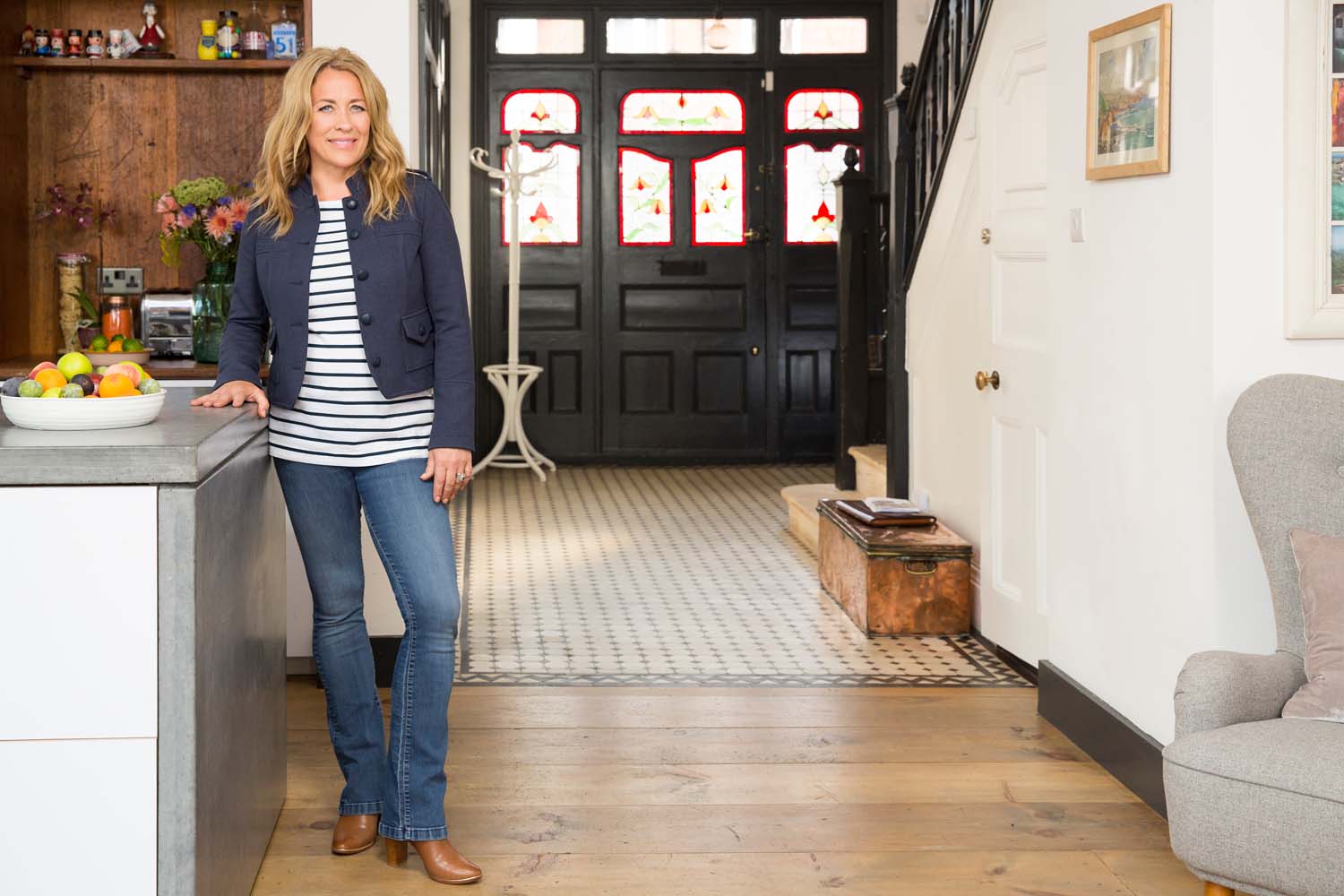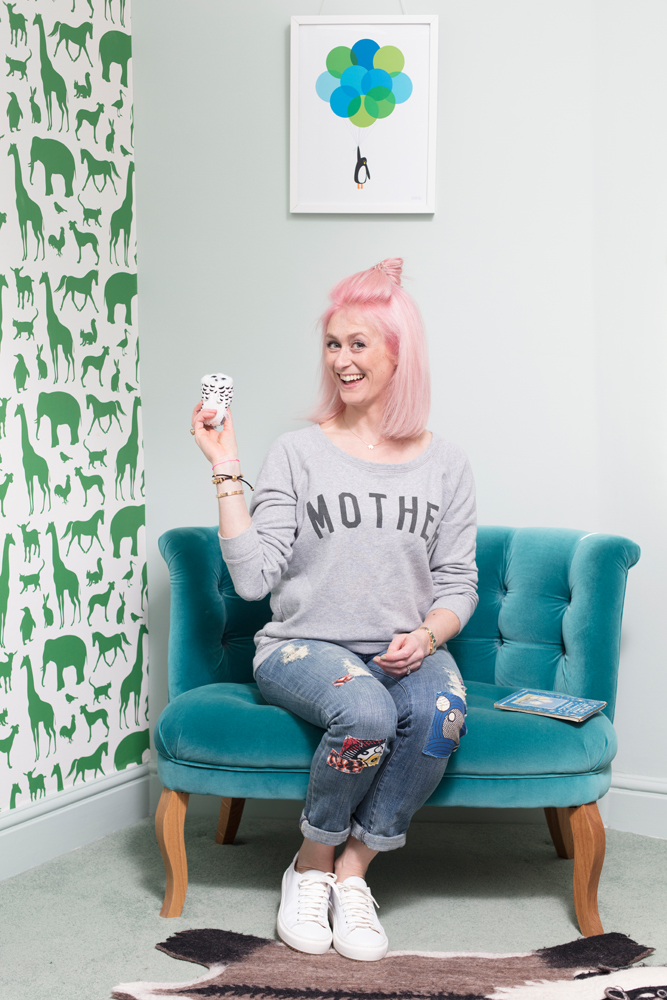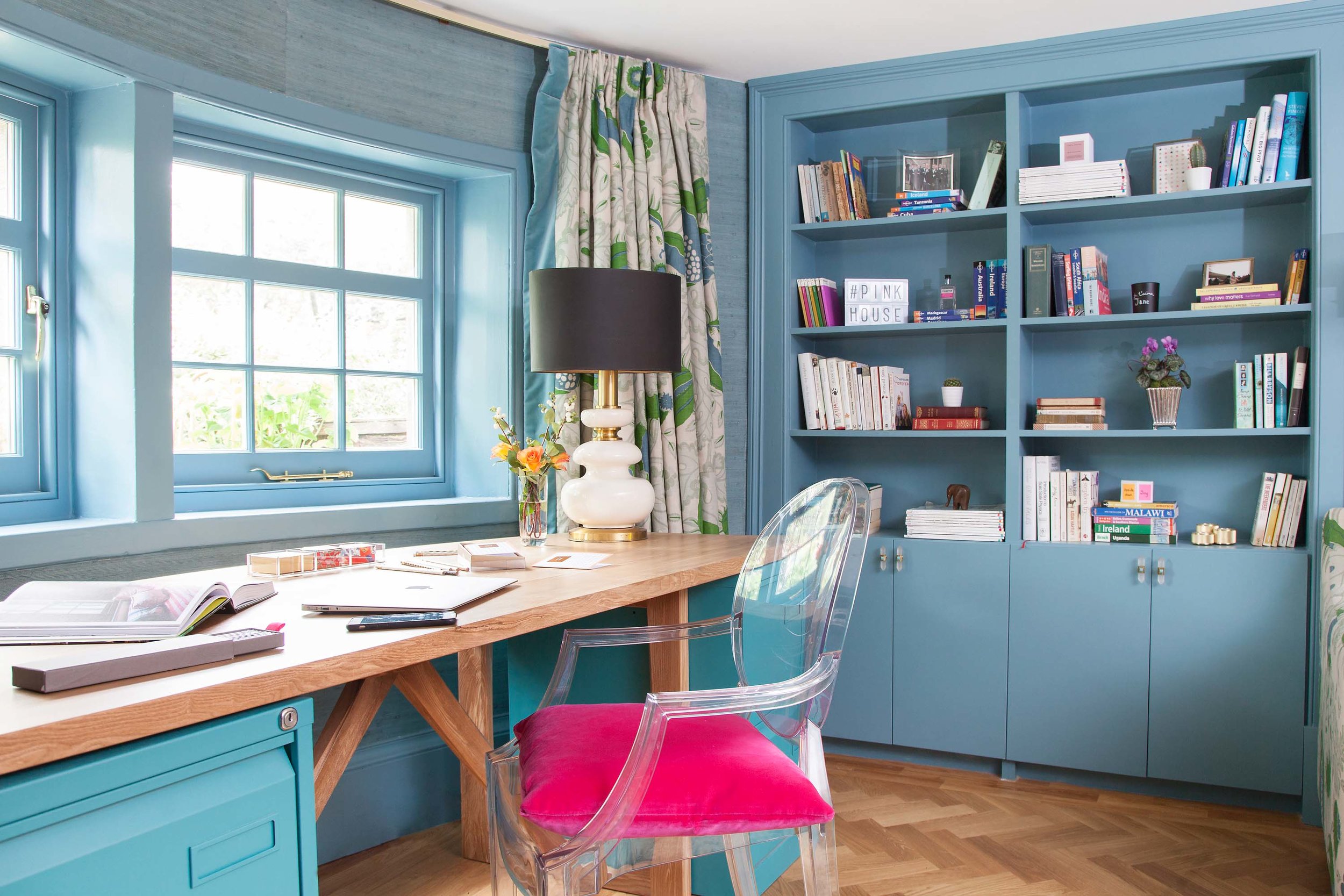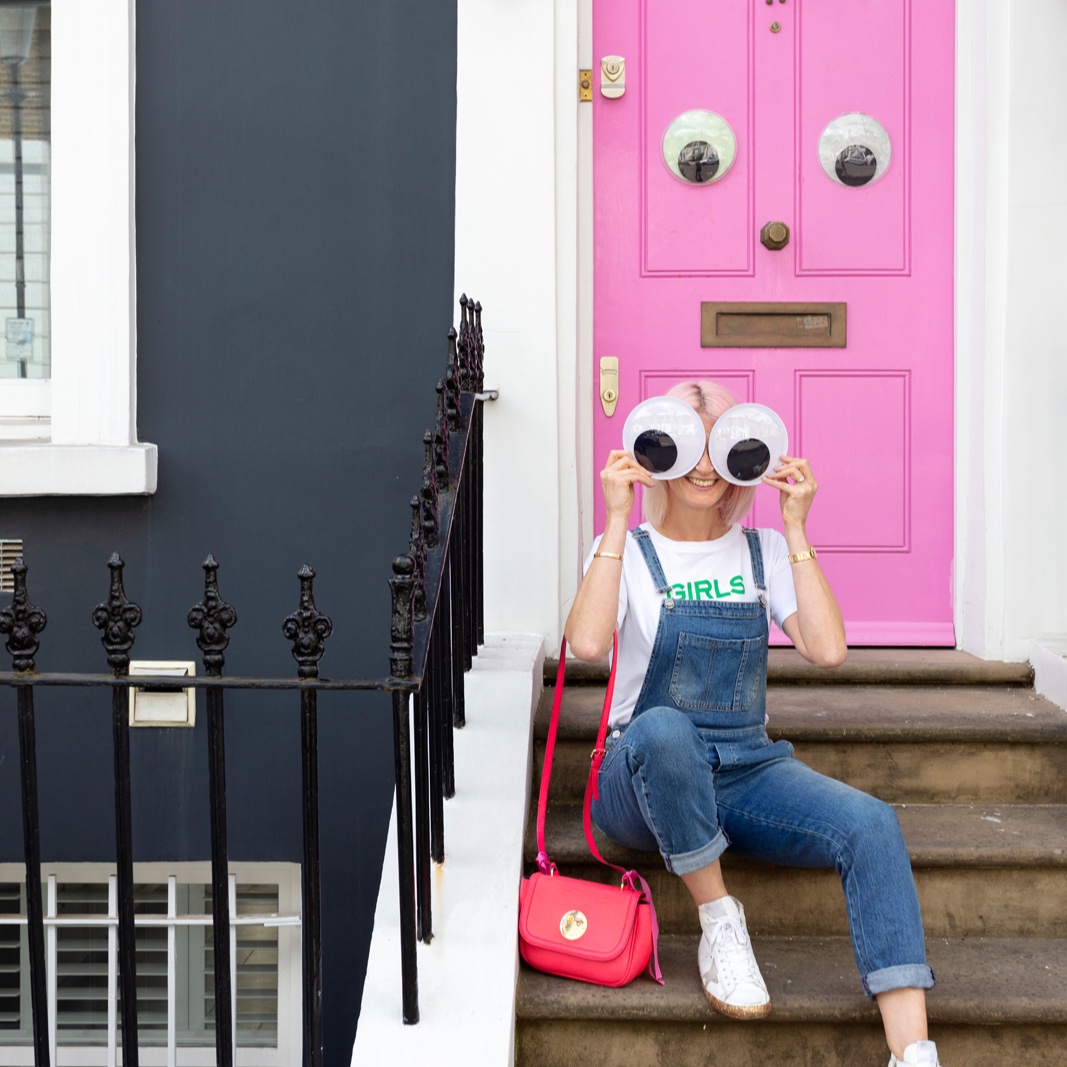As I write this, I’m feeling pretty stressed. We’re right in the middle of selling our Edinburgh house and buying a new place in London, and while nothing has gone wrong, everything is taking longer than I’d expected. I’m so paranoid about the whole thing I’m even wondering whether just writing about my stress will make everything collapse. Luckily the Pink House Husband is a master of dealing with such situations and keeps sending me pictures of Paw Patrol cartoons dogs in an effort to reassure me (“We’re all good pups. And we’ll save the day…”).
So my stress levels are starting to wane, but in fact this has less to do with children’s telly, and more to do with the lovely Sarah Beeny. Yes, this property guru agreed to take time out of her busy schedule (that’s before you factor in the four kids – seriously impressive) to chat with me about how to sell your house without losing the will to live. Read on for her excellent advice – I promise it’ll help make any home sale situation much less stressful, even without Paw Patrol...
EM: Hi Sarah! Thanks so much for sharing your advice with me and my Pink House Guests. So – let’s start with what I know is a big first question for many people considering a move: should I sell my house before I search for somewhere else?
SB: Hi Emily. So, when it comes to the question of selling or searching first, it really depends on where you’re buying. If it’s a popular area where you’ll be up against lots of other prospective buyers and where houses sell quickly, then it can put you in a much stronger position as you won’t be in a chain and the sale won’t be at risk of falling through if your house takes a long time to sell. You’ll also be able to move quickly – just like a first-time buyer – which most sellers see as a bonus, meaning they might accept a lower offer. However, if you don’t find somewhere quickly after selling your house, you could find yourself stuck in rented accommodation, which can be expensive. And at times when house prices are rising quickly, if you no longer own your property you could find yourself priced out of the market as you’ll no longer be benefiting from increases on your home’s value.
EM: What are your top tips for preparing a property before putting it on the market?
SB: If you want to get the best possible price, your home needs to be looking its absolute best, so you must go the extra mile. Scruffy décor should be repainted, carpets should be cleaned, and any outstanding DIY jobs should be tackled. Kitchens and bathrooms often sell properties, so they need to look great and can easily be modernised with new worktops, taps, tiles and flooring. Gardens are a huge selling point too, so make the most of your outside space by mowing the lawn, cutting back greenery and planting some beautiful flowers in colourful pots. And ahead of viewings, you should de-clutter and give your home a deep clean to really show off its true potential.
EM: I’ve got lots of crazy wallpaper and brightly-coloured walls. Should I paint everything neutral before putting my home on the market?
SB: No, it’s absolutely fine to have a colourful interior and let your style shine through, but you need to make sure all the colours in a room work together to create a cohesive, stylish look. Bold, stylishly put together rooms can actually be a huge pull for prospective buyers. However, if there are too many colours and patterns in one room that don’t work well together, it can create a cluttered, chaotic look. In that case, going more neutral will make your home more attractive to buyers.
Should I paint my hallway beige for a quick sale?/Photo: Susie Lowe
EM: How can I maximize the number of people who view my home?
SB: By making it look its absolute best before you take pictures of it, pricing it realistically and ensuring your estate agent markets it effectively. You need to make sure your estate agent puts it on all the big property portals, contacts prospective buyers that are looking for similar properties and markets the property online via email and its website.
EM: How can I keep the selling costs to a minimum?
SB: By using an online estate agent like mine (Tepilo). We charge a low set fee no matter how much your home sells for, so you can save thousands compared to using a traditional agent who will charge a percentage of the sale price. You can also save money by shopping around for the services you’ll need to complete the move, such as solicitors and removals companies, who can charge wildly different prices.
EM: How do I decide how much to ask for my property? Keep the price low to attract more viewers, or raise it higher in the hope of making more money in the end?
SB: My advice would be to price it realistically right from the start. If people love it, they’ll pay over the asking price to get it, and if interest is low, you can always reduce the price later on. Researching what other houses in the area have recently sold for will give you a good indication of the price you should be asking for, and asking an agent, like Tepilo, to provide a valuation will give you a good idea of how it should be priced. Going lower or higher has the potential to deter potential buyers – you may price some of them out or make others think there’s something wrong with your property if you price it too low.
EM: I’ve heard it’s best not to be the one to show prospective buyers round your home as then they find it harder to imagine it as ‘their own’. What do you think?
SB: I don’t think it puts people off at all, and many prospective buyers actually prefer to be shown around by the owners. After all, a seller knows their own home better than anyone and is in the best position to deliver a genuine sales pitch, whereas a would-be buyer might be less engaged by an agent who is perceived to be going through the motions.
EM: Any tips on things you should/shouldn’t say when showing a prospective buyer round your property?
SB: Be friendly and cheerful, but always keep it professional, as over-friendliness can be seen as a sign of desperation on the part of the seller. You also need to make prospective buyers feel comfortable. People viewing your property will probably want to explore every nook and cranny, and you should let them do this without following them around the whole time. Give them freedom to roam, but be on hand to answer any questions they have.
Hello! Would you like to buy my house? I'll throw in this cute owl toy for free!/Photo: Susie Lowe
EM: What’s the best time or day of the week to show people around?
SB: There’s not really a best day or time as such, as it depends on each prospective buyer and their schedules. However, it does help to hold viewings when it’s light outside as this lets people see your property clearly. Houses and streets also look much better in daylight, and if it’s a sunny day then that’s a bonus!
EM: How can I tell if someone is genuinely interested in buying my house?
SB: Most people won’t put an offer on a property if they’re not genuinely interested, but there are some key clues. Firstly, ask them if their current home is up for sale, and if not, what is their plan to sell it quickly – if they’re serious about buying a new home they’ll have a plan in place and if not, it could be a warning sign that they’re not that serious. Also, ask prospective buyers if they have a mortgage in principle agreed and ask to see it. If they have one, it shows they’ve already taken the time out to speak to mortgage companies to find out how much they can borrow and are ready to go.
EM: I love my curtains and blinds – can I take them with me? What about light fittings?
SB: Yes, you can take curtains and blinds with you, but check they’ll fit your new property first! Lampshades are also fine to take, but if you want to take full fittings you should replace them with basic ceiling rose fittings so the new owners won’t be without lights when they move in. All this will be covered in the fixtures and fittings document your solicitor will give you.
The curtains in my office are definitely coming with me/Photo: Susie Lowe
EM: What can I do to stop someone pulling out of the sale at the last minute?
SB: There’s nothing you can do to 100% guarantee a buyer doesn’t pull out, but you can ask for an up-front, non-refundable deposit when accepting an offer, which will deter them from pulling – although people rarely do this for normal homes. I would suggest setting a series of dates to work to so everyone stays on track, and try to make the process as quick as possible because once you’ve exchanged, no one can pull out.
EM: Any other insider tips on how to make my sale go smoothly?
SB: Make sure you use a great solicitor, and that the buyers have everything in place their end – such as their mortgage and deposit. Buyers will also often ask lots of questions throughout the sales process, so make sure you’re able to answer their questions quickly – find out which utility providers you use, what your council tax band is and the key measurements of rooms and have any paperwork and guarantees to hand. It’s also good to know what you will and won’t negotiate on in the event of any survey findings, as that can save a lot of to-ing and fro-ing.
EM: Thanks so much Sarah – I wish I’d spoken to you before starting this whole selling process! For more information on Tepilo, Sarah’s online estate agency, click HERE
This post was sponsored by Tepilo, but as always, all opinions are my own. If you’re a brand looking to work with The Pink House, please contact me on emily@pinkhouse.co.uk














